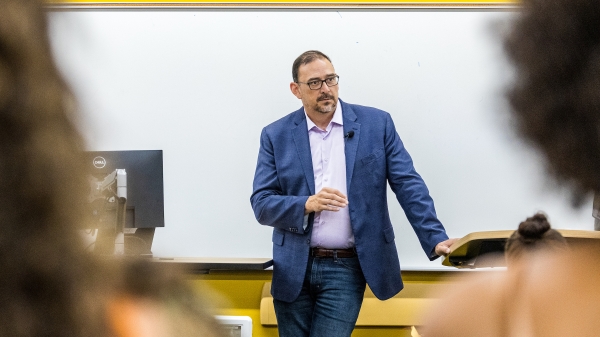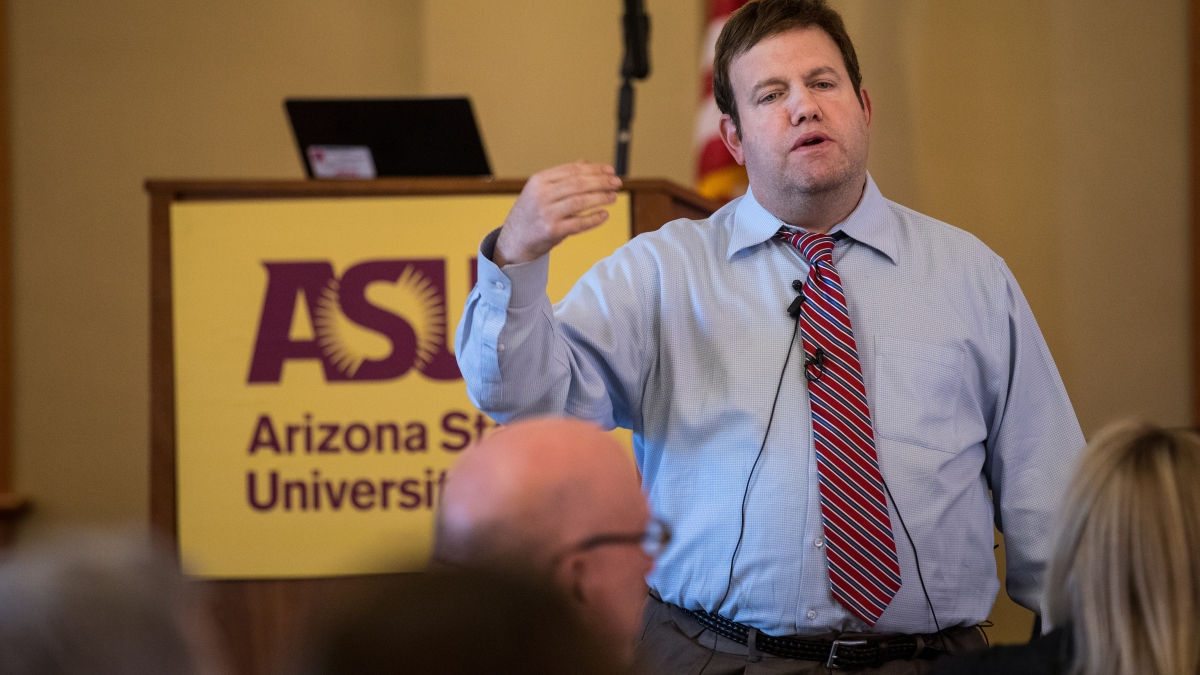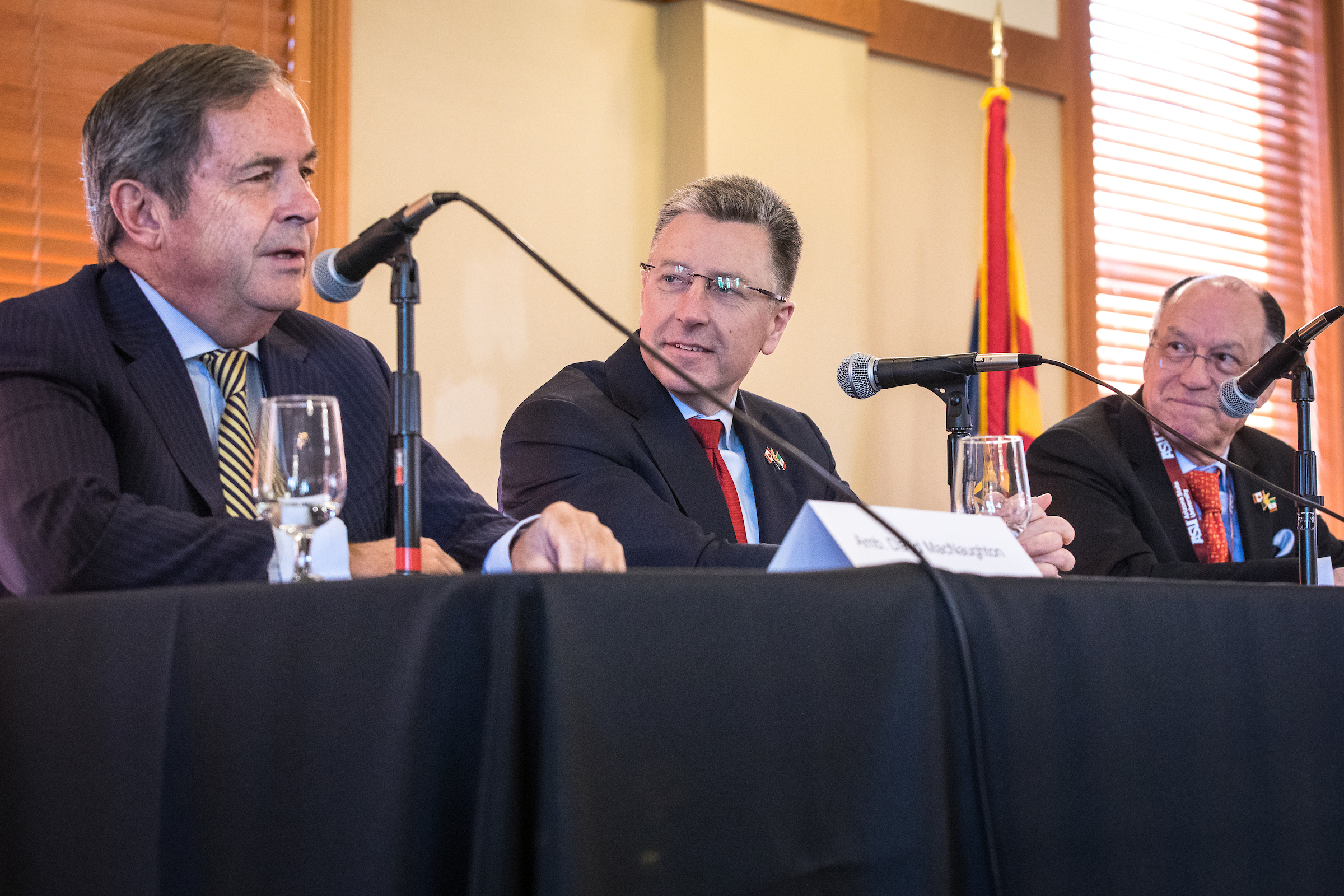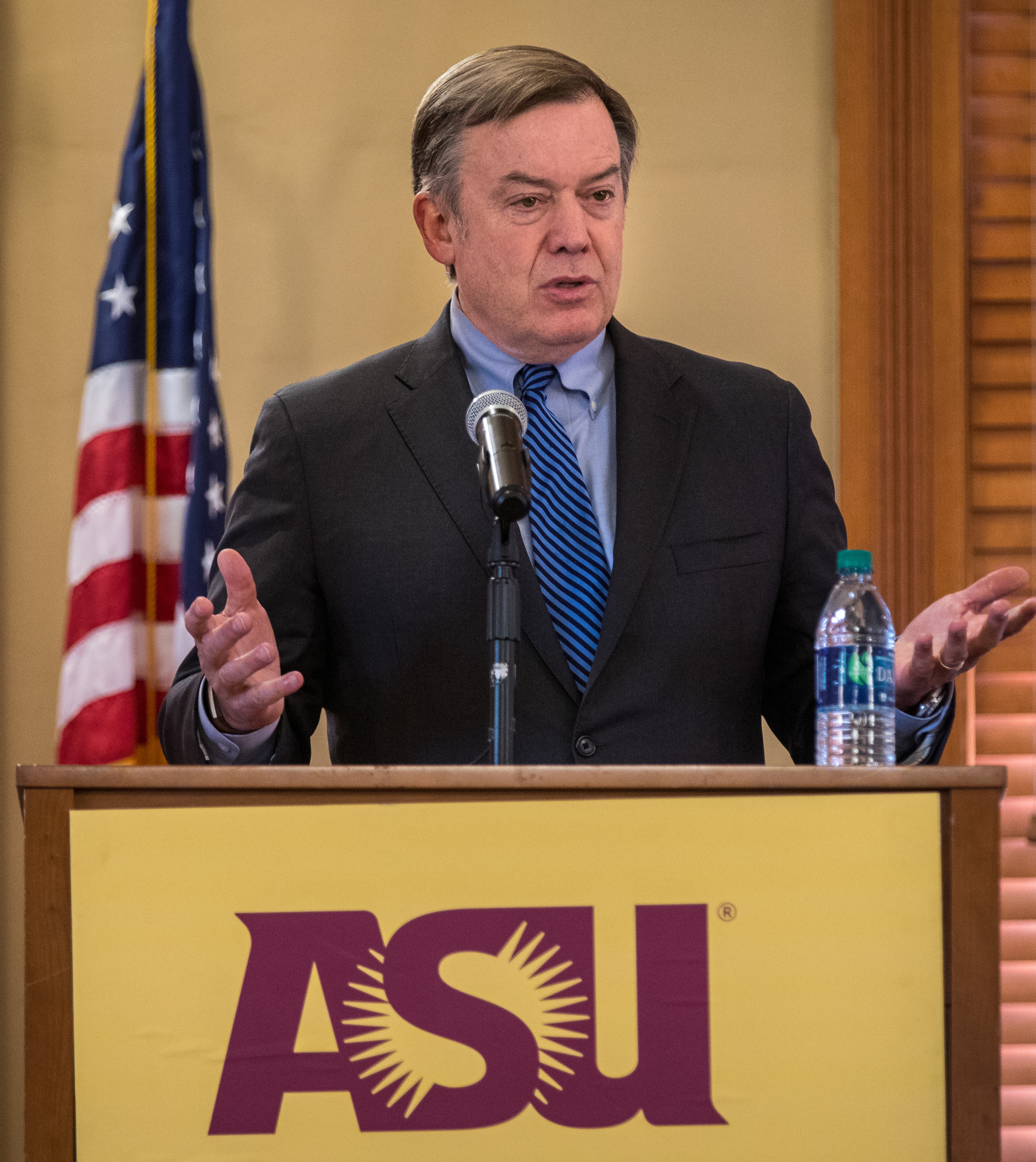Sticking around a town with a shuttered mill and bemoaning the fact you can’t buy a new Cadillac every two years like your high school-educated grandfather did will not keep America competitive on a global level.
It’s going to take a willingness to move and embrace lifelong learning to lift American workers left behind by globalization, said panelists at "Redefining Trade: A New Vision for Competitiveness & Prosperity," an Arizona State University conference on the North American Free Trade Agreement on Wednesday at the Tempe campus.
NAFTA has been good for the three signatory countries, but stronger ties need to be forged to compete against the rest of the world. Together, Canada, Mexico and the U.S. are stronger, panelists said.
The issue should not be one North American country against another.
“This is about creating an economic unit which is globally competitive,” said David MacNaughton, Canadian ambassador to the U.S. “The people around the world who are really competitive are going to be grinning ear to ear to because we’ve frittered away a global advantage.”
“Any kind of tit-for-tat retaliation ends badly for everyone,” he added.
VIDEO: David MacNaughton on improving trade agreements
The danger comes from abroad, said Mario Chacón, head of the Global Business Promotion unit of ProMéxico, a trust fund of the Mexican federal government that promotes international trade and investment.
“We need to look at that,” Chacón said. “We need to fight common enemies.”
Mexico buys $8.3 billion in exports annually from Arizona.
“With the infrastructure we are building, that will go up,” Chacón said. “We want to get together with North America and have research and development.”
(From left) Canadian Ambassador to the U.S. David MacNaughton speaks as moderator Ambassador Kurt Volker of the McCain Institute and Mexico's Ambassador Mario Chacón look on during their panel discussion at ASU on Wednesday. Photo by Charlie Leight/ASU Now
Free trade, and NAFTA, is a bigger issue than who holds office at the moment, said the McCain Institute's Kurt Volker, an American diplomat who served as the U.S. ambassador to NATO and presently serves as the U.S. special representative for Ukraine. “We’re talking about three massive economies, with massive things that drive them,” Volker said.
“We need to equip our people enough to be resilient at the forefront,” MacNaughton said. “The changes in the next 10 years will be like the Industrial Revolution.”
“We are losing jobs, but we are creating new ones, so we have to train our people,” Chacón said.
VIDEO: Mario Chacón on preparing for the future
The need for an accurate message
It will take three things for America to compete successfully in a global economy, said pollster Frank Luntz, who presented an analysis of NAFTA and trade opinion polling data at the conference. First, lifelong learning, with workers prepared to go back to school every decade and learn new skills. Second, more education in science, technology, engineering and math. And third, more young people seeking out trades, which pay well but are unappreciated.
The key, Luntz said, is simplifying the message: Globalization needs to be pitched to an 11th-grade education level with the message that it creates jobs, a higher standard of living and lower costs for Americans, and that it’s good for American business.
“If you’re taking about deltas and curves and all the rest, you’re not reaching the people you need to reach,” Luntz said.
There can be no change that ends people’s sense of purpose, ASU President Michael Crow said.
ASU President Michael Crow
“We need solutions across a spectrum that drive us forward,” he said.
Crow also echoed the call for lifelong learning, “so that every single person has an opportunity to advance … in this new economy. … We need a knowledge-driven economy core.”
Anything below a 4 percent annualized growth rate is not a positive conversation, Crow said, citing statistics released earlier this week touting a 2 percent growth rate in the national economy.
“We need unencumbered free trade,” Crow said. “Free trade means open competition where a 100 percent American majority … can win in a fair and open system.”
NAFTA has been far better than is popularly assumed, Volker said — a message that is not trickling down.
“There is a widespread assumption that trade has damaged the U.S.,” he said. “That’s what you hear.”
VIDEO: Kurt Volker on trade opportunities in energy
However, the reality is it has been good for the U.S. and Canada.
“It’s been good since NAFTA came into effect,” MacNaughton said. However, he noted, “there are towns and cities and people who have been left behind.” He cited Flint, Michigan, as an example.
“The reality is not everyone has benefited equally,” he said. “There’s been no effort to look at mitigation of those who have been left behind. … The answer to that is not to turn back the clock.”
Trading on hope, not fear
Six million jobs in the U.S. depend on trade. Even viewed through a strong "America First" lens, the majority of the country is pro free trade, Luntz said. Recent polls showed 56 percent think NAFTA is good for the country.
Yet trade and the trade deficit are not urgent issues for most Americans, according to Luntz. Less than 1 percent think it’s the most important problem facing the country today.
VIDEO: Frank Luntz on President Trump's hostility to NAFTA
Mexico has a more positive attitude towards NAFTA than the United States. But the trend of jobs being lost to robots and machines does not stop at borders, Chacón said. Factory workers in Mexico also are being sidelined by software and robotics designers.
That's where the dedication to education comes in.
“The messages we send need to be clear and reach the pockets of people who vote,” he said. “Our job is to send the world a positive message.”
“We have to appeal to people’s hopes, rather than fears,” MacNaughton said. “We need to turn the dialogue into a hope message.”
Top photo: Frank Luntz, of Luntz Global Partners in Washington, speaks on polling data during the daylong conference on "Redefining Trade: A Vision for Competitiveness & Prosperity," in Old Main on the Tempe campus Wednesday. Photo by Charlie Leight/ASU Now
More Law, journalism and politics

New report documents Latinos’ critical roles in AI
According to a new report that traces the important role Latinos are playing in the growth of artificial intelligence technology across the country, Latinos are early adopters of AI.The 2024 Latino…

ASU's Carnegie-Knight News21 project examines the state of American democracy
In the latest project of Carnegie-Knight News21, a national reporting initiative and fellowship headquartered at Arizona State University’s Walter Cronkite School of Journalism and Mass Communication…

Arizona secretary of state encourages students to vote
Arizona Secretary of State Adrian Fontes looked right and left, taking in the more than 100 students who gathered to hear him speak in room 103 of Wilson Hall.He then told the students in the Intro…


